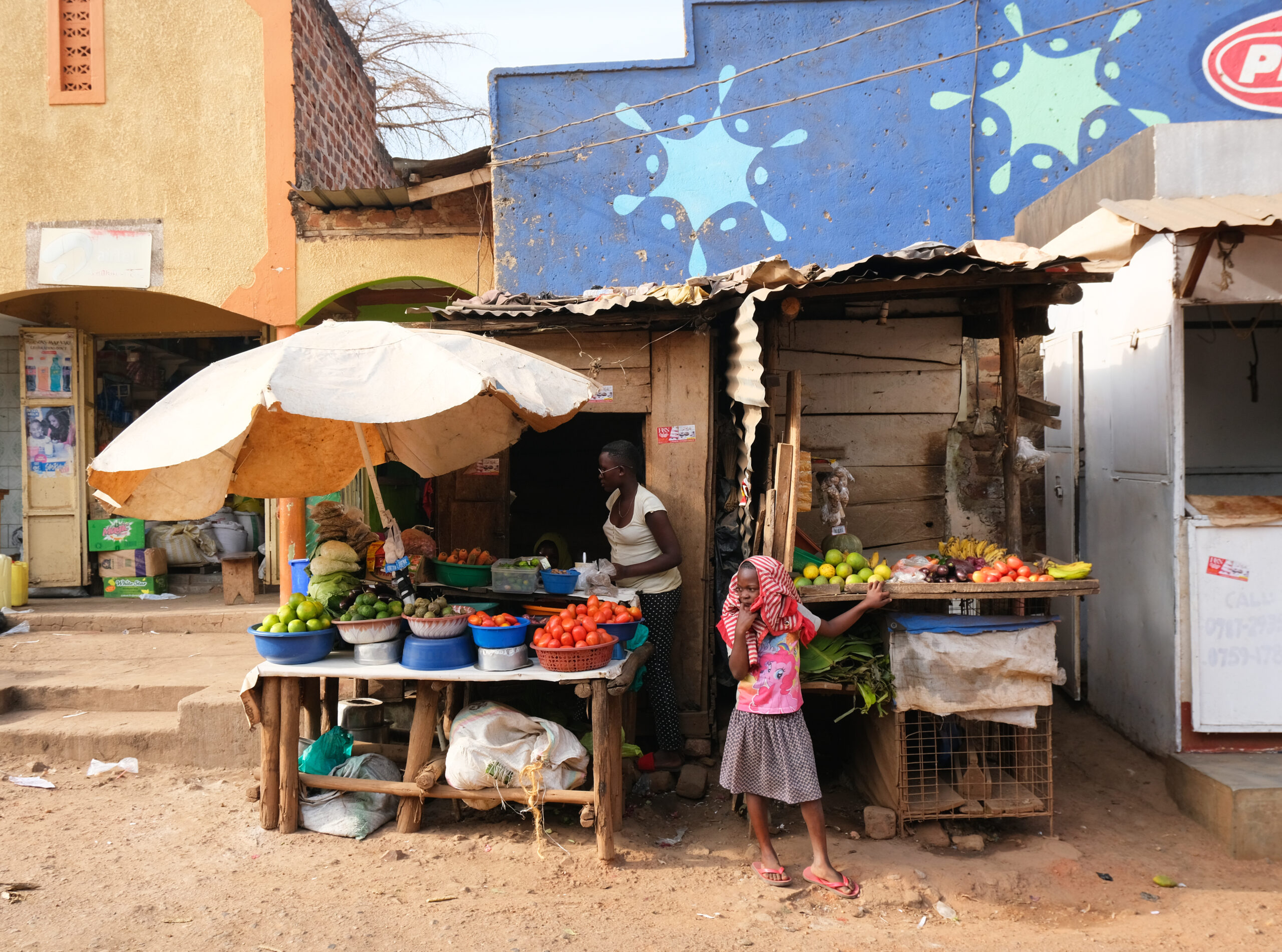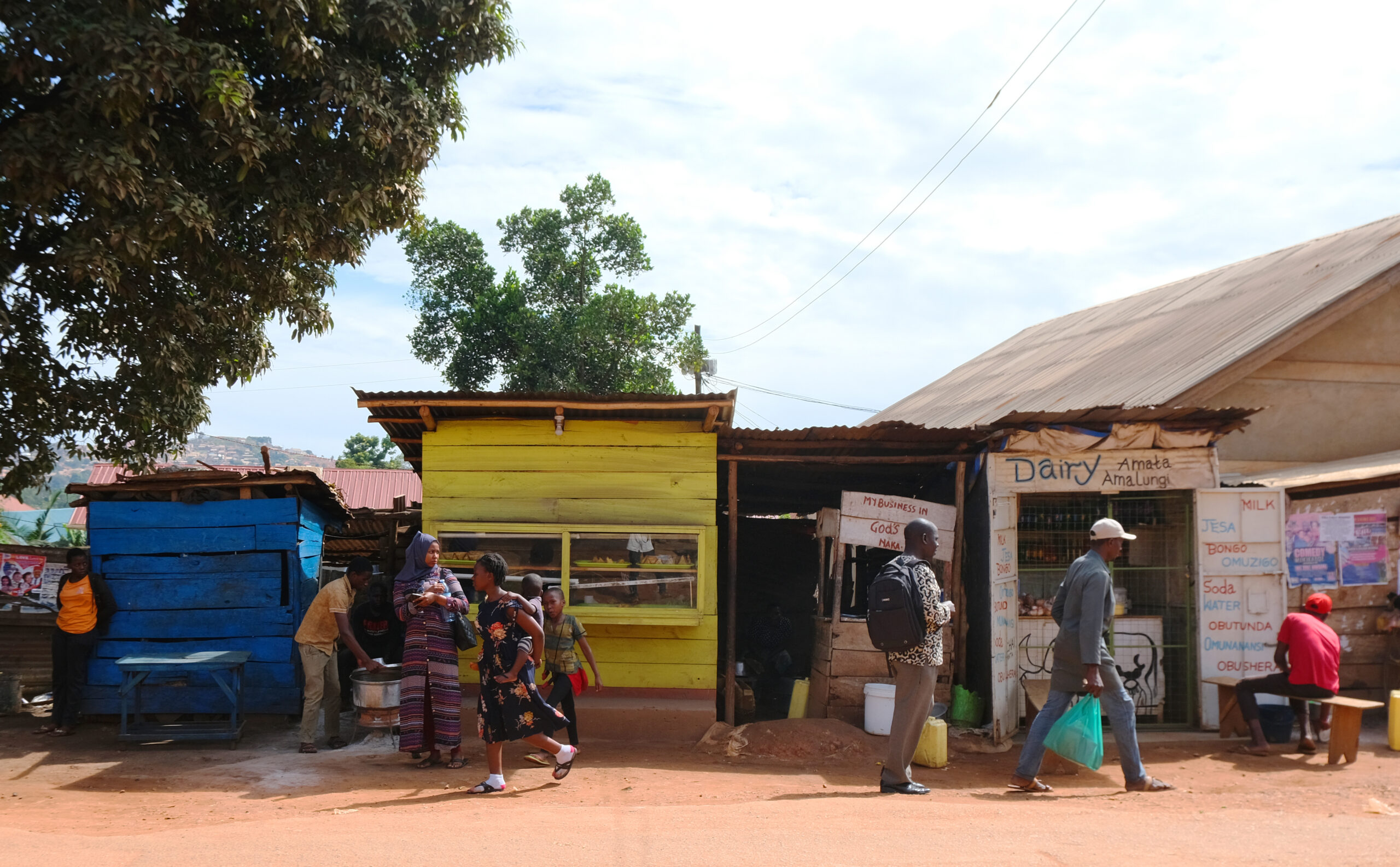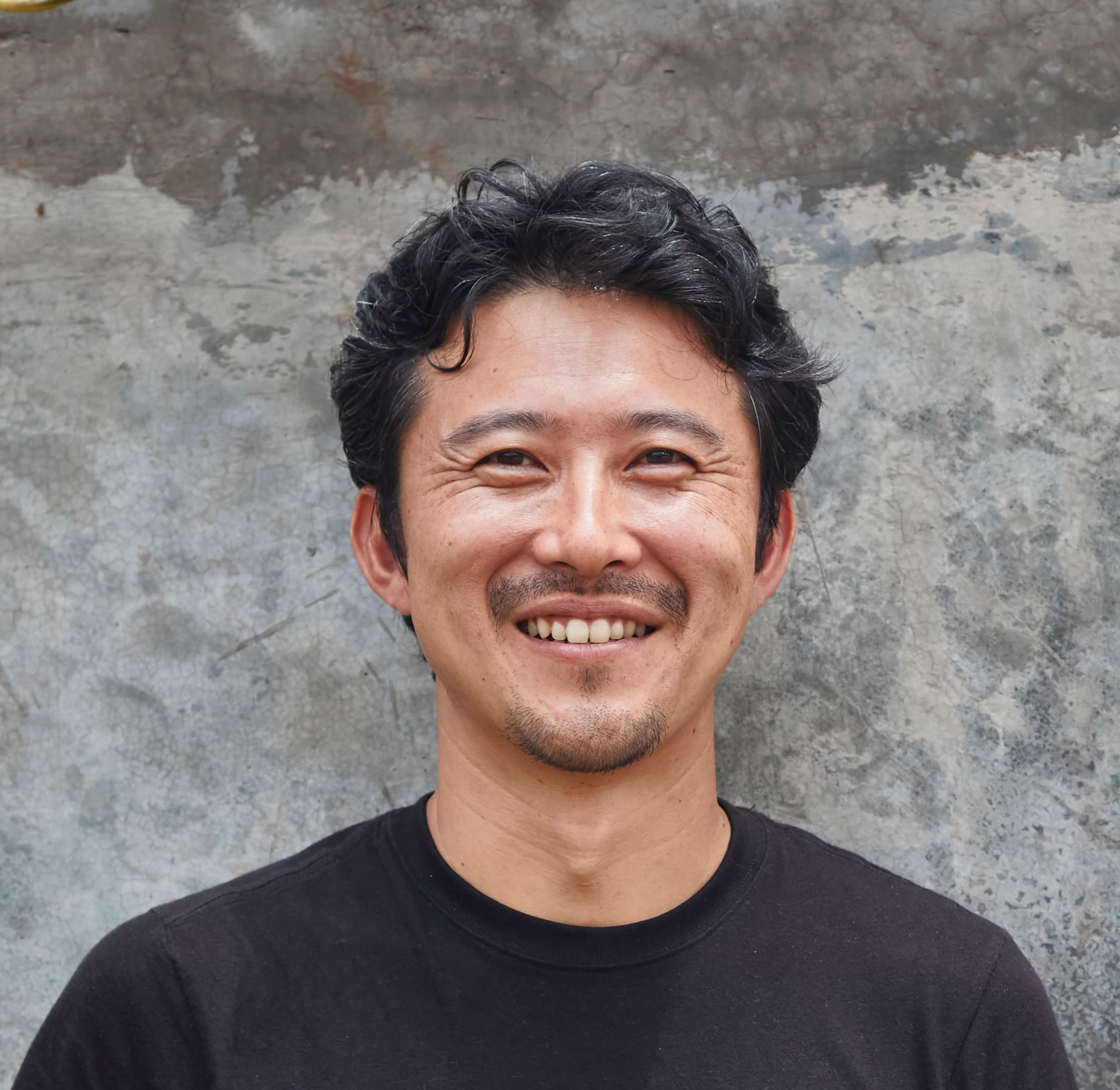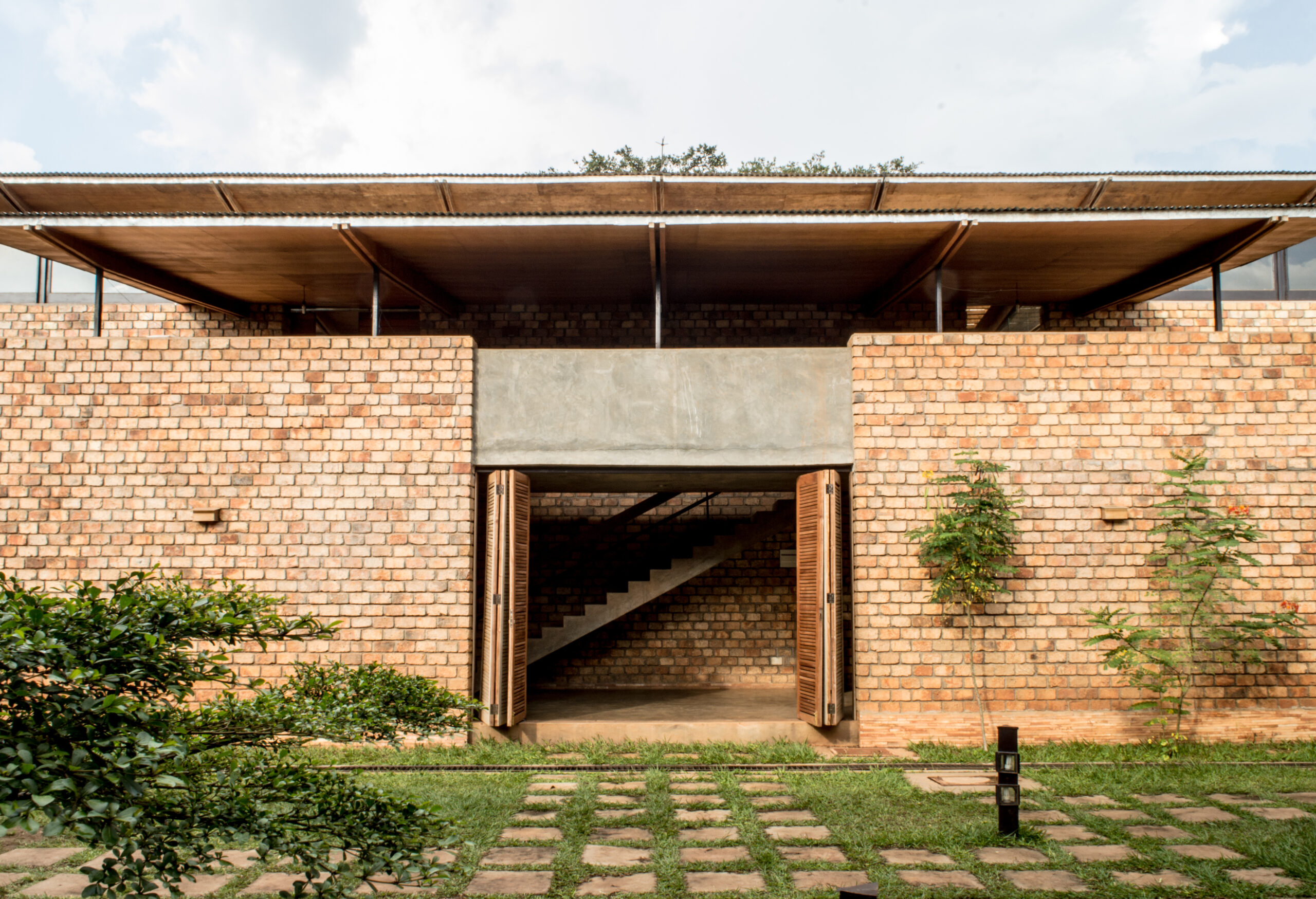Life and Informality -Kenchikushi 4.2020
原文で表示 (日本語)Cover: shacks on the street. Kiosks selling daily necessities and snacks. At the back right is a low-rise house with a row of huts attached to it.
The city is full of informal things.
In the suburbs of the capital city of Kampala, rapid change is evident as high-rise buildings and low-rise residences are being built here and there, while the people who live there seem to be living at a slower pace, neither panicked nor flattered by the changes. The lives of these people are inseparable from the informal, or so to speak, illegal shacks that proliferate on the streets. They sell and buy vegetables, fish, dairy products, mobile phones, and various other daily necessities, but they also serve
as waiting areas for motorbike taxis and shared-use bus drivers, and play a major role as a place for information exchange and socializing.
 Vegetable Shed. In order to protect the vegetables from the sun, parasols and interruptions are used. The vegetables are also arranged in a way that they can be seen from the street.
Vegetable Shed. In order to protect the vegetables from the sun, parasols and interruptions are used. The vegetables are also arranged in a way that they can be seen from the street.
The shacks that attach themselves to brick houses and shops, or stand alone in the streets, are illegal and could be evicted at any time if the authorities, such as the government or police, are to act on a whim. On the other hand, the contradictory appearance of the shops is endearing and interesting. Since the nature of the shops requires the products and buildings themselves to be visible from the street, they are often painted in highly saturated colors and have pictures and letters written on them
to stand out. If you stop and take a closer look, you can see the subtleties of the construction work, such as the sunshades that protect the products from the strong sunlight and the film that protects the products from the dust on the street.
They are made of cheap and easy-to-find timber pieces and galvanized iron. If a strong wind blows, they are likely to be blown away. It can be said that this is a form of ingenuity that responds well to the situation, based on the premise that “you never know when things will happen.”
In the daytime, tasteless storefronts can be lined with shacks at night. As the sun begins to set, parasols and small counters are brought out of nowhere, and business begins in a blink of an eye. They seem to line up in a disorderly fashion. Yet, there is a great freedom, lightness and power in the way they adjust to their daily situation, actively searching for the best footing on the uneven terrain and uneven roads, according to the rules of the local people and the circumstances of their surroundings.
These informal huts are established in dependence on other adjacent huts, houses, surrounding trees, and the formal (legally created) architecture and urban planning relate to them. They exist in opposition to each other, but at the same time, they guarantee a place to live and make a city.
The premise that we do not know what will happen tomorrow to our surroundings or to onself does not apply only to Uganda today. That is why I find the strength and charm in the way they create their daily life and adaptability through their own ingenuity, and there is so much to learn from them.
 A kiosk near the waiting area of the motorbike taxi. It is a warehouse with a deep eave from the hut, with a shop underneath. In front of the kiosk are bananas- the staple food.
A kiosk near the waiting area of the motorbike taxi. It is a warehouse with a deep eave from the hut, with a shop underneath. In front of the kiosk are bananas- the staple food.
Photo : Ikko Kobayashi
Source : “Kenchikushi” Apr 2020



